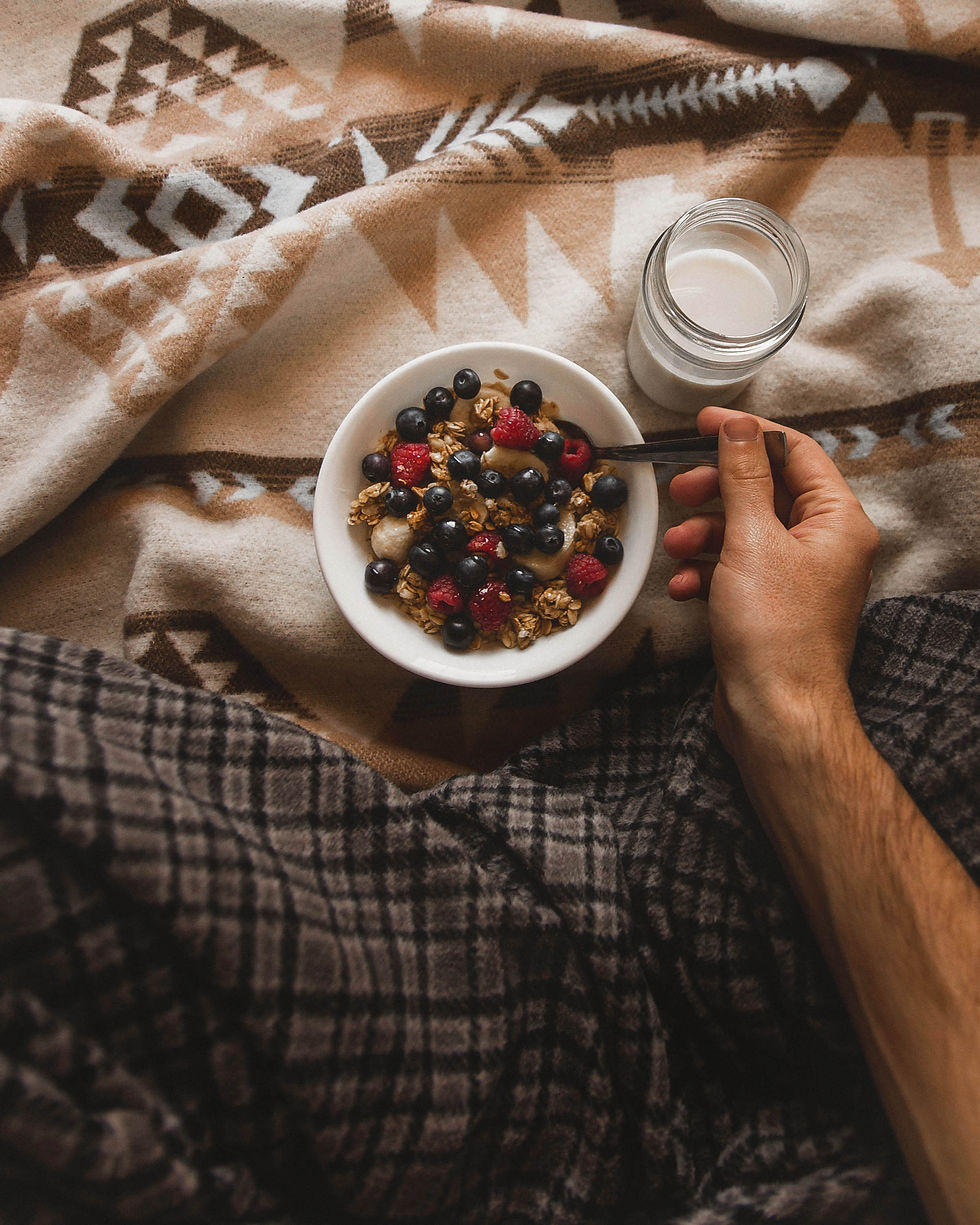MACROS
- thehealthyham
- Jun 9, 2017
- 3 min read

Macros, short for macronutrients, are the main building blocks of all the food you eat.
There are three macronutrients that are required by your body in large amounts and make up the majority of the calories you consume.
They are: proteins, carbs and fats.
Your body needs a combination of these key components to function properly.
There are many opinions surrounding the amount of macros to eat in a day and "magical" combinations that optimize fat loss.
The truth is, humans eat differently all over the world and consume varying amounts of macros. I haven't heard of any people groups dying out from eating a carb heavy diet or eating a diet low in protein.
I also have not found any conclusive evidence suggesting there is a benefit to eating a certain combination of macros when it comes to fat loss. In fact, the research I have found suggests the opposite. As long as you're in a calorie deficit, there seems to be no difference in weight loss when comparing diets that emphasize a certain macronutrient.
So, if we can't put one macro on a pedestal, let's just talk about all of them.
Proteins
What do they do?
Proteins are vital for tissue growth and repair. The body also uses proteins to produce enzymes, antibodies, hormones and more.
What happens when you eat it?
Proteins require more energy to digest than carbs or fats. So some of the calories from proteins you eat are expended during digestion and released as heat energy. This is called the thermic effect of food (TEF).
Proteins have the highest TEF. Roughly 20-30% of the calories from proteins you eat are used during the digestion process.
The prolonged digestion process of proteins make them very filling and satisfy hunger longer than other macronutrients.
Where do you get it?
Meat, animal products and plant sources. Animal sources contain complete proteins, most plant sources do not. Eating a variety of plants can provide the essential amino acids ("pieces" of the protein chain) found in animal sources.
Carbohydrates
What do they do?
All the macronutrients can be used for fuel, but carbohydrates are the preferred source of energy for the body (and the most fun to eat :) ).
What happens when you eat it?
Carbs are just long sugar chains. When they are consumed, the body breaks the chains and converts them to simple sugars. Glucose is the dominant simple sugar and used most readily by the body.
When there is a spike of glucose in the blood stream, insulin is released by the pancreas. Insulin clears the blood of sugar by stimulating tissues to absorb, use and store glucose.
The majority of glucose will go to three places-- the brain, the liver and muscle tissue. What isn't used by the brain or muscle for energy is stored in the liver. Some stays in the liver for immediate use and the rest is converted to triglycerides and sent to your fat storage for a rainy day.
Oh, and just to clear the air...
Yes, you can lose weight and still eat carbs. There was a time when I was eating close to 400g of carbs on workout days and was losing all kinds of weight.
Where do you get it?
Grains, legumes, vegetables, starches, fruits, sugars
Fats
What do they do?
Fats are precursors to hormones, help the body absorb certain vitamins and minerals, and essential for brain and nerve function. They are also the bodies second option for energy after dietary carbs.
What happens when you eat it?
Fat is digested and absorbed rapidly in the gut. Fats are the least satisfying because the body hardly uses any energy to break them down.
That's why you can eat a whole value sized bag of potato chips in one sitting before you even realize it.
No, dietary fats do not directly make you fat, but fat sources are calorically dense. It isn't hard to rack up on calories from fat in a short amount of time.
There are some research claims that suggest incorporating plenty of fats in your diet may decrease sugar cravings and inflammation.
Where do you get it?
There are saturated fats and unsaturated fats.
Saturated fats come from sources like butter, cream, cheese, palm oil and coconut oil.
There is a certain stigma around saturated fats being unhealthy, but this just isn't true. Eating saturated fats is not going to raise your cholesterol and increase your risk for heart disease.
Unsaturated fats come from sources like olive oil, canola oil, nuts, flax seed and seafood.
You need a combination of all the macronutrients to live a healthy life. Cutting out one for weight loss purposes is not sustainable and unnecessary.
Hope you're feeling a little more confident in your macro knowledge and can apply this info to reaching your fitness goals.
I'm tired of staring at this bowl of fajita chicken, peppers, onions and quinoa, so let me go and get my macros in for the day.
Eat up!







コメント